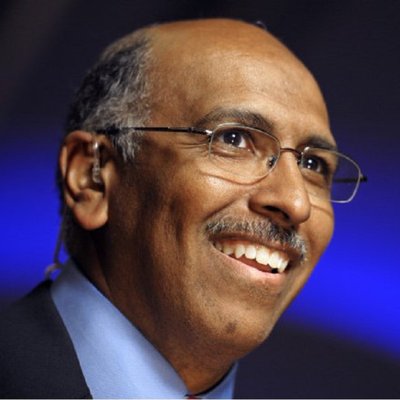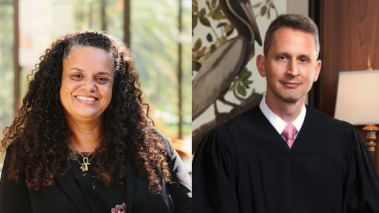
Piers Morgan Interview with Ron DeSantis
Dear Commons Community,
Florida Governor Ron DeSantis has finally taken the gloves off and launched a blistering attack on former President Donald Trump.
In an exclusive wide-ranging interview with Piers Morgan airing on Fox Nation’s “Piers Morgan Uncensored” tomorow he said “stay tuned” about his widely expected announcement that he’s running for president and declared: I have what it takes to be president and I can beat Biden.
But it’s what he said about Trump that will ignite a firestorm in the Republican Party. As reported by the New York Post.
For months, DeSantis has said nothing as Trump’s escalated his verbal attacks on him, branding his ex-protégé “Ron DeSanctimonious” and “Meatball Ron.”
On Monday, Trump went nuts after DeSantis took a shot at him over his anticipated indictment over alleged payoffs to ex-lover Stormy Daniels, saying, “I don’t know what goes into paying hush money to a porn star to secure silence over some type of alleged affair.”
The inferred morally censorious tone sparked a furious response from Trump, who raged on his own Truth Social platform: “Ron DeSanctimonious will probably find out about FALSE ACCUSATIONS & FAKE STORIES sometime in the future, as he gets older, wiser and better known when he’s unfairly and illegally attacked by a woman, even classmates that are ‘underage’ (or possibly a man!). I’m sure he will want to fight these misfits just like I do!”
Trump’s mood is likely to deteriorate further when he hears what DeSantis now says about him in our lengthy interview at the Governor’s Mansion in Tallahassee, the most personal and revealing he’s ever given.
It was clear that the governor has had enough of Trump’s constant baiting and felt ready to take him on in what could end up being a ferocious battle for the White House.
And in a series of jabs at his likely biggest Republican nominee rival, DeSantis slammed Trump over his character failings, chaotic leadership style, and for his handling of the COVID pandemic — especially in keeping controversial health chief Dr. Anthony Fauci in his post helping to run the White House Coronavirus Taskforce.
Trump even awarded a presidential commendation medal to Fauci in one of his last acts as president.
When I asked DeSantis to cite specific differences between him and Trump, he said: “Well I think there’s a few things. The approach to COVID was different. I would have fired somebody like Fauci. I think he got way too big for his britches, and I think he did a lot of damage.”
DeSantis also slammed Trump’s chaotic, self-obsessed, and divisive management style, saying: “I also think just in terms of my approach to leadership, I get personnel in the Government who have the agenda of the people and share our agenda. You bring your own agenda in you’re gone. We’re just not gonna have that. So, the way we run the Government I think is no daily drama, focus on the big picture and put points on the board and I think that’s something that’s very important.”
As for the rude nicknames, he mocked: “I don’t know how to spell the sanctimonious one. I don’t really know what it means, but I kinda like it, it’s long, it’s got a lot of vowels. We’ll go with that, that’s fine. I mean you can call me whatever you want, just as long as you also call me a winner because that’s what we’ve been able to do in Florida, is put a lot of points on the board and really take this State to the next level.”
Until now, DeSantis has never engaged with any of Trump’s regular attempts to provoke him and he doesn’t intend to make a habit of it.
“To me, it’s just background noise,” he said.
“It’s not important for me to be fighting with people on social media. It’s not accomplishing anything for the people I represent. So, we really just focus on knocking out victories, day after day, and if I got involved in all the under tow I would not be able to be an effective Governor. So, I don’t think it’s something that makes sense for me.”
There was a time when DeSantis would have never dared talk this way about Trump whose presidential endorsement of him when he first ran for Governor almost certainly got him over the line in a paper-thin win over Andrew Gillum by just 34,000 votes.
I reminded him of what Trump had tweeted before that 2018 election: “Ron DeSantis is a brilliant young leader. Yale and then Harvard who would make a great Governor of Florida. He loves our country. He’s a true fighter.”
DeSantis, 44, chuckled: “Things have changed a little bit, I guess. It is what it is.”
Then he spoke about their previous friendship.
“We had a good relationship [when I was a Congressman and I think one of the reasons he got to know me is because I saw the Russia collusion thing as a farce from the beginning. Very few people said that. We had a handful of us in Congress that were fighting back against that. So, I would go on TV, and I would defend him when it wasn’t popular and when it was kinda politically risky, but I just thought it was the right thing to do and then I thought that he had good ideas for the country. And then when I became Governor, his last two years as President, we worked very well together. He had a place in Florida and worked well with us to serve our state.”
But then came the big break-up.
“You made a fatal error in your relationship with Donald Trump,” I suggested.
“What’s that?”
“You got too popular.”
DeSantis laughed loudly.
“Well, I would say if you look at some of the change from that . . . the major thing that’s happened that’s changed his tune was my re-election victory.”
It was, mainly because while most of Trump’s big endorsements did badly in the midterms, his previous pet student was by far the biggest Republican winner, landing a massive new majority by more than 1.5 million votes in a stunning validation of his leadership by Florida voters.
“If you’re [Trump] desperately trying to get back to the White House this was a nightmare,” I said.
“My view though is we should want the country to do well,” DeSantis replied.
“I want other Republicans to do well. I want them to eclipse me. We’re setting a great standard in Florida, have everyone up their game.”
We met just two hours after he poked a disapproving moral stick at Trump over his Stormy Daniels legal scandal.
When I asked if he meant to be as censorious as he sounded when talking about Trump allegedly paying off porn stars, he doubled down and replied: “Well, there’s a lot of speculation about what the underlying conduct is. That is purported to be it, and the reality is that’s just outside my wheelhouse. I mean that’s just not something that I can speak to.”
The message was clear: I’m nothing like Trump when it comes to sleazy behavior.
And when I followed up by asking if personal conduct in a leader matters, he contrasted Trump to past presidents with a higher moral code.
“At the end of the day as a leader,” he said.
“You really want to look to people like our Founding Fathers, like what type of character, it’s not saying that you don’t ever make a mistake in your personal life, but I think what type of character are you bringing? So, somebody who really set the standard is George Washington because he always put the Republic over his own personal interest. When we won the American Revolution, Washington surrendered his sword. [King[ George III said he’s the greatest man in the world if he gives up power. I think the person is more about how you handle your public duties and the kind of character you bring to that endeavor.”
I asked him how important truth is to him in a world where leaders like Trump, and recently ousted UK prime minister Boris Johnson, have played so footloose with facts.
“People feel whether it’s being in the US or the UK, there’s been a departure from the truth being an important factor of leadership?”
“100%,” he replied.
“Truth is essential. We have to agree that there’s a certain reality to the world we live in and if we can just create our own facts then we’re never gonna be able to agree on anything or never really be able to do policy in a way that makes sense, and so yes, it’s not your truth or my truth, it’s THE truth.”
There’s no doubt that DeSantis is now preparing to take on the man who claims to have made him what he is.
I asked him if he was familiar with the story of Frankenstein, and he said he’d seen the movie.
“And you’re alluding to what?” he smirked, knowing full well what I was alluding to.
“Dr. Frankenstein creates a monster then loses control of the monster and then the monster ends up killing him,” I reminded him. “You know the parallel I’m making . . .”
He chuckled. “Let’s put the country first rather than worry about any personalities or any type of individual . . . at the end of the day, I’m a vessel for the aspirations of the people I represent. It’s not about me, as Ronald Reagan said, ‘there’s no limit to what you can accomplish if you don’t care who gets the credit.’ ”
“That’s true,” I replied, “but you’re up against somebody who definitely cares who gets the credit, and who’s desperate to want to win back the White House.”
“Well, I’m not up against anybody quite yet,” DeSantis replied.
Not quite.
But after this explosive interview, I’m sure he will be very soon.
Piers Morgan’s interview with Gov. DeSantis airs Thursday on “Piers Morgan Uncensored,” Fox Nation.
Watch it!
Tony





 Strike of Los Angeles Schools Goes into a Fourth Day!
Strike of Los Angeles Schools Goes into a Fourth Day!





